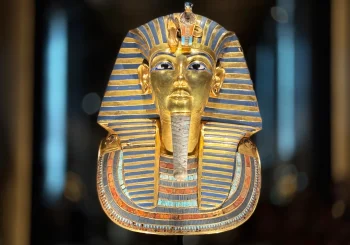Five years after mass protests broke out across Egypt leading to the toppling of former president Hosni Mubarak, and bearing popular chants for “bread, freedom, social justice,” the country has recoiled back to a human rights crisis of unprecedented proportions.
Since the 2013 military takeover which forced Mohamed Morsi to step down, making way for President Abdel Fattah el-Sisi to rule the country, several controversial laws have been decreed. In light of the parliamentary absence which lasted over three years, from mid-2012 till early 2016, decreed laws which severely limited freedoms and expanded the authority of the state vis-à-vis civil society were not subject for discussion, let alone voting.
Among the many repercussions of this questionable range of human rights-defying laws are forced arrests, the banning of political movements, journalism-impeding laws, anti-protests laws and more.
In 2013, the Muslim Brotherhood, from which former president Mohammad Morsi hailed, was outlawed and designated a “terrorist organization.” In the following year, the April 6 movement, which played a key role in the 2011 revolution, was also banned.
However, on the more troublesome end of laws introduced in 2013 is the protest law. The law stipulates that any gathering of more than 10 people without prior approval by the government would be dissolved, putting the participants at risk of receiving hefty fines.
Following such scheme of laws, it comes as a natural and predictable consequence that politically motivated arrests have sharply increased. Solely during the first year following Morsi’s ouster, 41,000 arrests were recorded, the vast majority of which were motivated by political considerations, according to the Egyptian Centre for Social and Economic Rights. Among those who have been arrested are multiple prominent activists such as Mahienour El-Massry and Alaa Abdel Fattah.
Forced disappearances have also marked a growing concern in Egypt. According to the Egyptian Commission for Rights and Freedoms, 340 cases of this phenomenon were registered in the space of just two months, as reported by Middle East Monitor in December 2015.
Furthermore, outcries have repeatedly pointed out the inhumane imprisonment conditions, describing how prisoners are kept in overcrowded cells. Several reports have also been released, bringing to the public’s attention physical and sexual abuse which occur in confinement, in addition to a number of deaths.
However, the death toll wasn’t solely increasing behind confinement walls but was greatly contributed to in courtrooms. Mass death sentences have been issued by Egypt’s judiciary against alleged members and supporters of the Muslim Brotherhood. Since the beginning of 2014, almost 600 people have been sentenced to death.
Freedom of expression has also been placed on the chopping board. In August 2015, the notorious anti-terrorism law was issued, criminalizing the publishing of information concerning suspected terrorist acts that contradicts the official statements released by the government.
Sisi’s rule has seen more independent journalists increasingly harassed and intimidated by Egyptian authorities. Prominent journalist and human rights activist Hossam Bahgat was arrested – and later released – in November 2015 for writing a report about former army officers.
In a widely circulated article published only days before the fifth anniversary of the 2011 revolution, Egyptian journalist Mohamed Lotfy writes: “In my 10-year career, it’s never been so dangerous to operate in a country where unauthorized raids, arrests and disappearances have become routine.”
Yet it wasn’t only Egypt’s journalists who suffered the impeding restraints of the new laws. Human rights organizations have also found it increasingly difficult to freely publish their findings on the situation of human rights in Egypt. Among a series of raids on human rights organizations, an investigation was launched against the Cairo Institute for Human Rights Studies in June 2015 after publishing information about human rights violations by Egyptian authorities.
Adding to the crackdown on freedom of expression, a different crackdown on religious thought has seen vivid growth recently. Despite the fact that Egypt’s constitution protects freedom of religion, authorities continue to charge people with “blasphemy” and “contempt of religion” for publicly voicing views which allegedly go against the values of Islam – such as atheism.
What had been speculated to be a precautionary measure ahead of the fifth anniversary of the 2011 revolution, the authorities raided thousands of private homes where activists, journalists and others suspected of planning protests on January 25 reside.
In their commentary, Amnesty International said in a statement that “Egyptians have been made to watch as their country reverts back to a police state.
“Peaceful protesters, politicians and journalists have borne the brunt of a ruthless campaign against legitimate dissent by the government and state security forces. Tens of thousands have been arrested and the country’s prisons are now overflowing, with widespread reports of torture and hundreds held without charge or trial.”
On Saturday, a group of 27 public figures issued a statement on Facebook demanding the release of the youth who have been arrested for claims of planning and urging protests to take place on January 25. “The signees of this statement express their utmost surprise at the state of alarm and confusion which has taken over Egypt’s regime as the anniversary of January 25 Revolution nears,” the statement read.
“This state of fear and panic has manifested in the series of arrests which cracked down on dozens of youth with the charge of calling for demonstrations.”
According to Amal Sharaf, a spokesperson for the April 6 movement, “oppression is worse than anything we saw before.”
However, the question remains, now that Egypt has an active parliament which is hoped to achieve more balance and voice the people’s concerns, will such atrocities and violations extent much further, or is Egypt soon to acknowledge and dignify human rights for what they’re worth?







Comments (0)